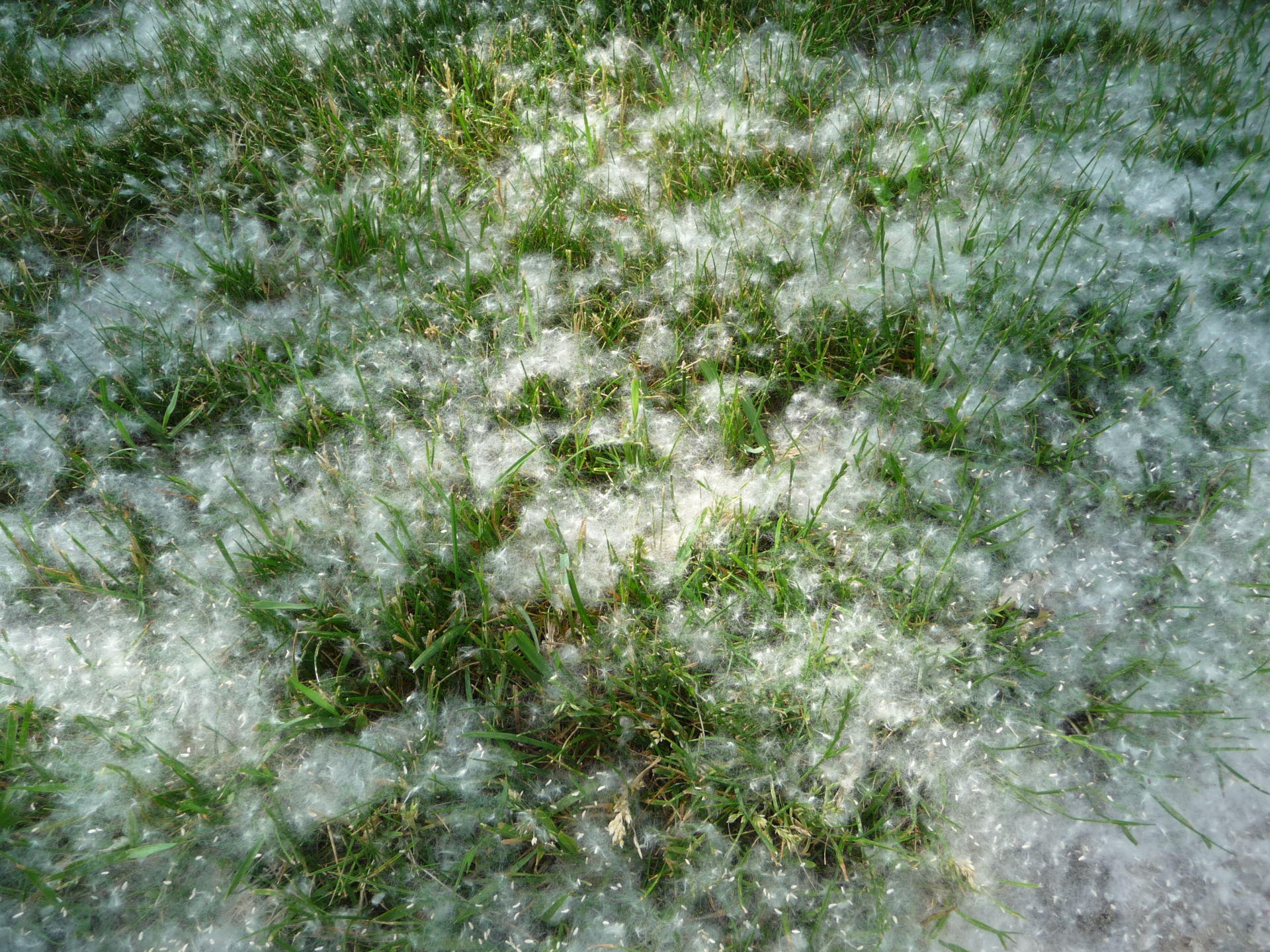Snow in June
Garden Clippings for June 23, 2018
Snow in June? If you live in the Twin Lakes area of Sarnia, you would not disagree. In some areas accumulation could be measured in inches.
The culprit is the Salicaceae tree which we commonly call Willows, Poplars and Aspens. These trees drop an abundance of seeds that resemble tiny shreds of white cotton.
There are more than 300 species in the Salicaceae family, too many to begin to separate and identify. Many are native to Canada or the USA, and many have been introduced from elsewhere.
All Salicaceae trees are fast growing, weak wooded, rough textured, with an unpredictable growth habit. Bark is usually dark, heavily fissured with deep furrows. Their roots are aggressive, often lifting concrete sidewalks or interfering with drainage pipes and field tiles.
Walk through a park with several Salicaceae trees after a windstorm and you will find plenty fallen limbs on the ground. The soft wooded trees rot easily and make poor lumber. Nurseries won’t grow Salicaceae trees because they have too many negative characteristics. Poplars and Willows may have their place where there is lots of room to grow but are generally not suited for city conditions.
But Poplars, Willows and Aspens should not be dismissed as lousy trees. They grow quickly and provide fast shade. Their glossy green leaves are reasonably attractive and make a wonderful rustling noise in the slightest breeze. Salicaceae trees clean the air and provide food and shelter for countless birds, insects and squirrels.
Flowers of Salicaceae trees are tiny male and female parts formed on narrow catkins, on separate plants. Fruit is in a small capsule, containing many tiny seeds with cotton-like hairs. These bits of cotton are carried far away from the mother plant with the hopes that a few might eventually produce new plants.
The fluffy white seeds of Salicaceae trees seem to be more abundant this year. They will often stick to your clothes and will easily be carried indoors by the family dog or cat. Experienced cyclists and runners know enough to keep their mouths shut when they are plentiful.
Enemies of Salicaceae trees are homeowners with pools and air conditioners. Pool filters and skimming baskets need to be cleaned regularly, almost daily. The walls of air conditioners should be swept with a broom or sprayed with a water hose pistol.
The good news is that the problem of flying bits of cotton is short lived. They normally appear in early June and disappear soon after Father’s Day.


